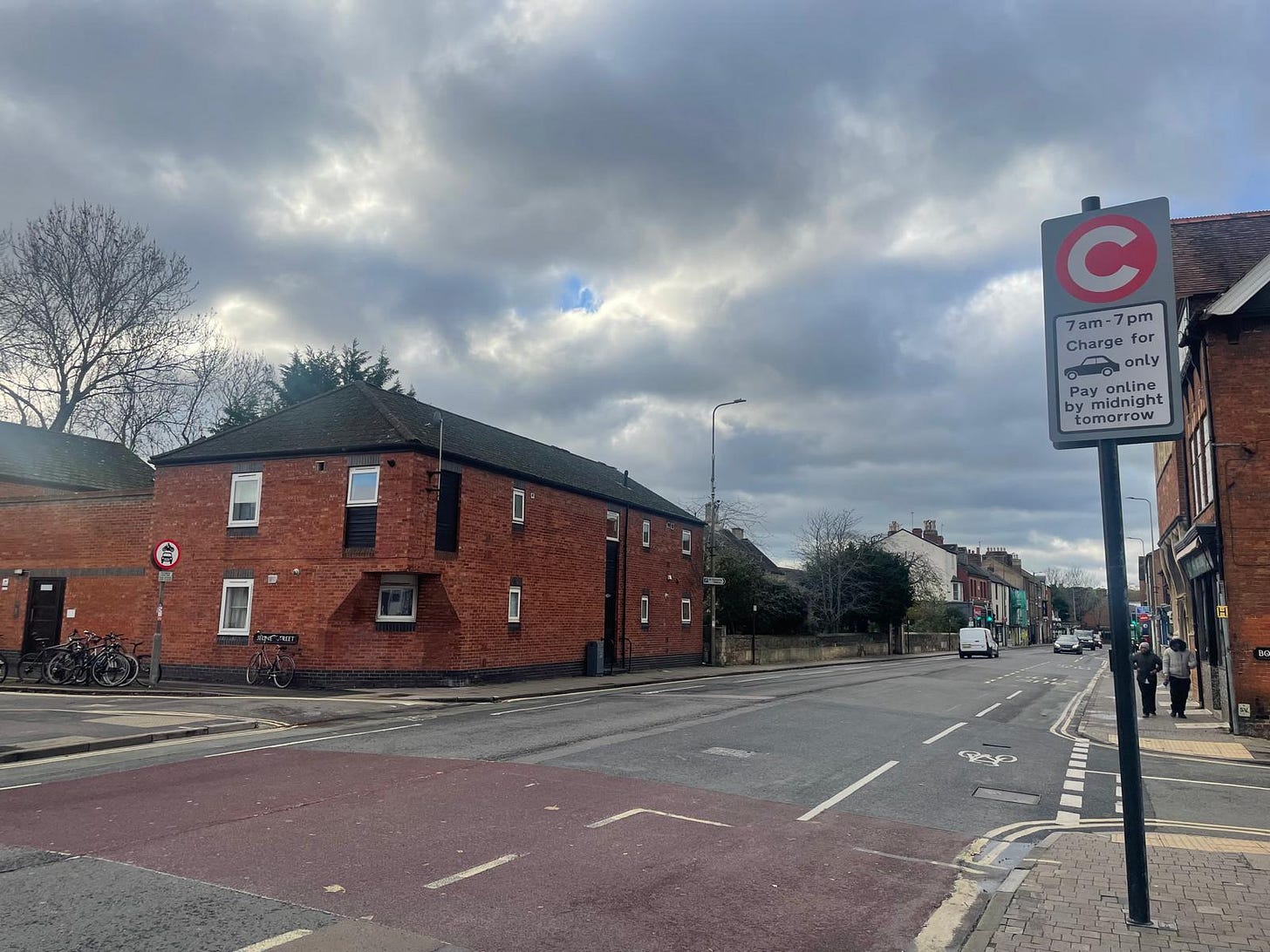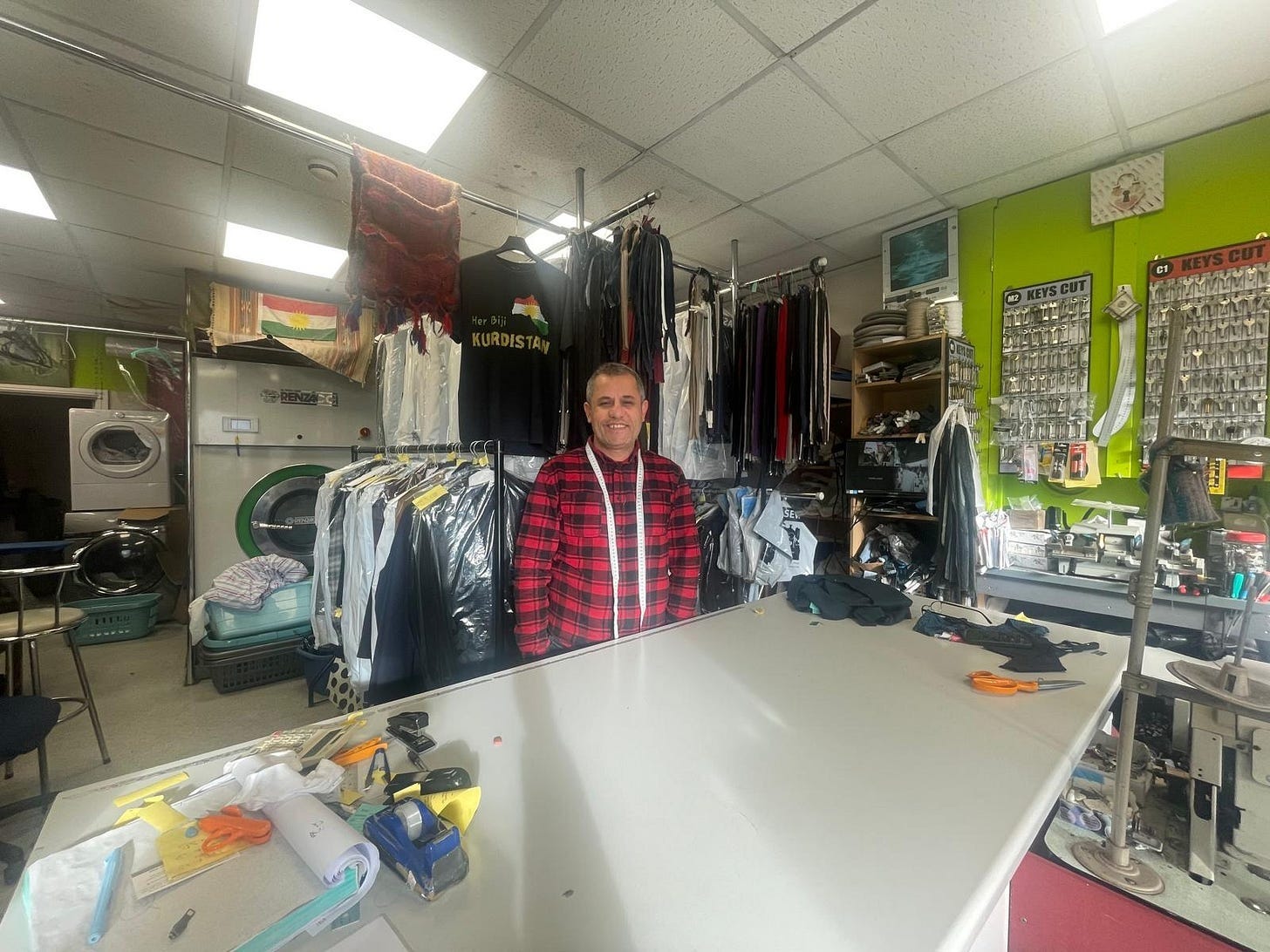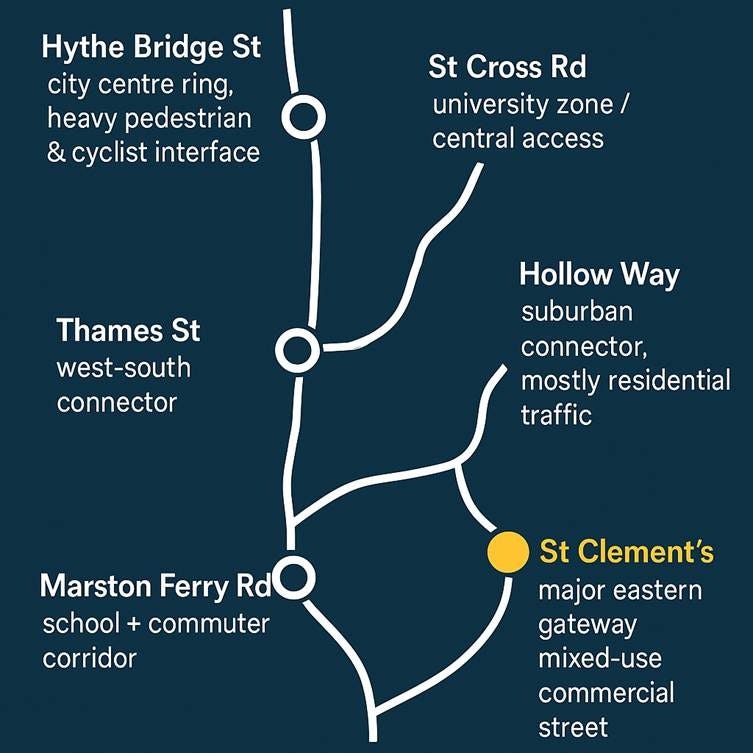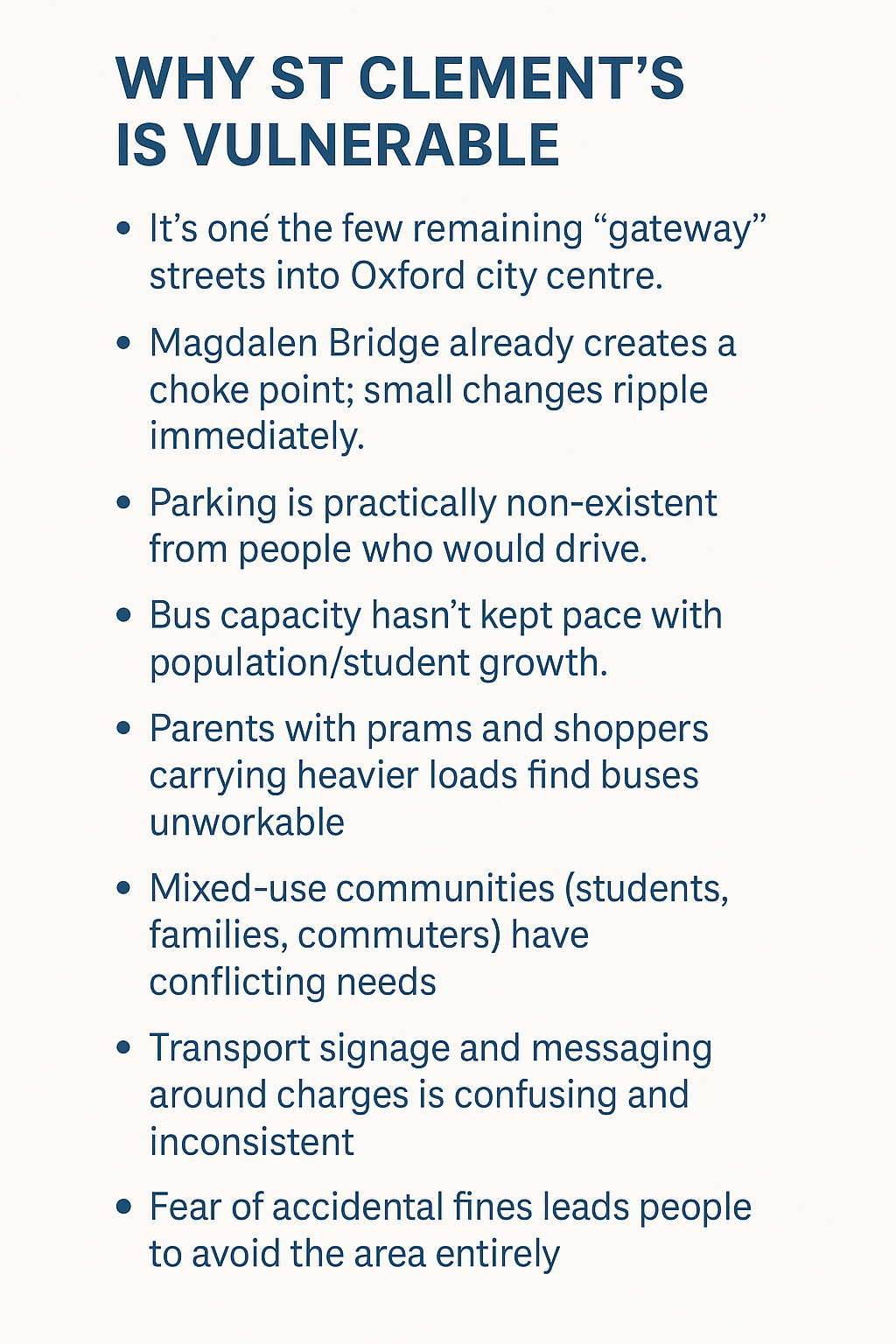Bitter Oranges And Sour Lemons - Do The Congestion Charges Sound The Death Knell For St Clements's Businesses?
Congestion Charges are said by some local businesses to be a toll too high to pay

Alarm bells are ringing for St Clement’s businesses after Oxford’s Congestion Charges implemented.
One business owner, who didn’t wish to be named, said that they were packing up and leaving after the charges dealt the last in a long line of blows to their business.
And they’re not the only ones complaining about the effects of the charges.
Bakir Ali Najar, who runs Wash and Sew, says he has seen a “substantial” drop in customers. “People are scared of getting fined,” he says. “Even those with permits don’t want to use them just to collect their dry cleaning.” Some have switched to delivery services rather than drive through the cameras.
Bakir Ali Najar, owner of Wash and Sew (credit - Stephanie Bell)
Mark Chesterton, a regular customer at a long-established restaurant on the road says he’s seen lunchtime trade halved, adding that the cost of parking and the charge means people are £10 down before they’ve ordered. The restaurant owner, who didn’t wish to be named, reports that customers now avoid the pre-7pm window.
Oxford’s Congestion Charges are last in a long queue of changes as part of several traffic-taming County Council policies. While many local businesses insist it’s not solely the charges causing problems, they insist it’s a key factor in accelerating existing pressures on them.
However, not all traders are feeling the impact - staff at the Syrian Kitchen say they haven’t noticed a change.
St Clement’s is one of six roads included in the temporary charge, handling commuters, residents, students and heavy bus traffic. In addition, there’s sparse parking, LTNs and bicycle lanes. It all adds up to small policy changes having a huge impact.
Andrew Gant, Cabinet Member for Highways Management, defended the charge as a temporary measure linked to the Botley Road closure. He says it will ultimately reduce congestion and improve air quality, arguing that evidence doesn’t show reduced footfall where congestion is cut.
As Oxford’s never-ending battle to balance traffic reduction with the survival of its independent businesses rages on, some feel defeated.





